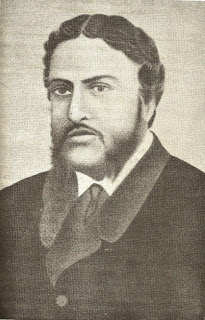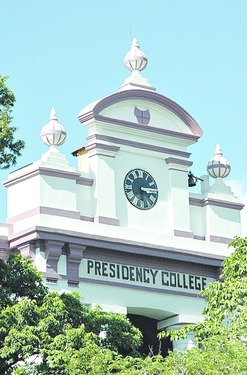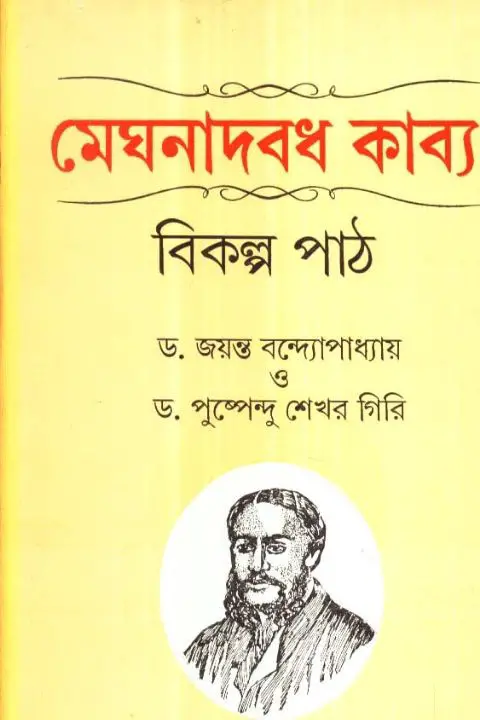Michael Madhusudan Dutt was Born on 25 January 1824 to a law practitioner, Rajnarayan Dutt and to mother Jahnabi Devi in the village of Sagardari, Bangladesh as Madhusudan Dutt.
Michael Madhusudan Dutt Biography
He was considered as a pioneer of Bengali drama in the 19th century. Later, he converted his faith to Christianity in 1843 after which he continued his schooling in England.

The tragic epic, ‘Meghnad Bodh Kavya’ is considered to be one of the greatest drama of all time. Belonging from a wealthy background, he enrolled himself to the Hindu College, Calcutta (Presidency College now) in 1833 where he studied Literature along with other subjects such as Bangla, Persian, and Sanskrit.
The Early Life of Michael Madhusudan Dutt
He won several accolades during his college life for his brilliance in Literature. At the college event, he recited one of his own compositions which drew a lot of attention to him. Many of his compositions were published in Jvananvesan, Bengal spectator, Literary Gleaner, Calcutta Library Gazette, Literary Blossom and Comet.

However, in the year 1843, he decided to change his faith to Christianity to escape the system of arranged marriage. This led him to leave the Hindu college, after which he enrolled at the Bishop’s College.
During his stay there, he started nurturing the Latin and Greek language. His decision to change his religion created a rift between him and his family, ceasing to send money further. In 1849, he finally joined as a teacher in Madras.
Michael Dutt’s Rise in Fame
He taught at the Madras Male Orphan Asylum School (1848-1852) and then at Madras University High School (1852-1856). Besides teaching as a profession, he also wrote columns and articles in newspaper and journal.
While working as an assistant editor at the Madras Spectator (1848-1856), he published two of his verses in English under the pseudonym ‘Timothy Penpoem’: The Captive Ladie and Visions of the Past.

In 1856, he returned to Kolkata after his mother and father both died along with a French woman named Henrietta. He started working as a clerk in the police court. Meanwhile, his friends encouraged him to create compositions of his in Bengali.
His initial compositions were in English which turned out to be unsuccessful after which he reluctantly turned to Bengali. Realizing the vast scope of Bengali writing, he soon started emerging as a famous dramatist.
Michael Madhusudan Dutta Poems
Dutt became a part of Belgachiya Theatre in Kolkata by 1858. He created many plays thereafter, ‘Sarmistha'(1859), ‘Buro Shaliker Ghare Ro’ (1860), ‘Ekei Ki Bale Sabhyata’ (1860), ‘Padma Vati’ (1860), ‘Megnad Bodh Kavya’ (1861).
Megnad Bodh Kavya’ proved to be one of the greatest verse based on the epic Ramayana, describing the heroic battle between gods and demigods.
Dutt achieved a permanent statue of a great novelist within the Bengali Literature. He also created many poems and sonnets about a women’s feelings which had not been seen before that within the boundaries of Bengali Literature.
Dutt had also translated few other plays to English before leaving for England in 1862. During his stay in England and France(1862-1866) he wrote few sonnets Babgabhasa’ and ‘Kapotaksa Nad’ which were later published as Chaturddashpadi Kavitavali in 1866.
Later Life of Michael Madhusudan Dutt
He became a barrister by 1866. Dutt returned to Kolkata in 1867, since then started practicing law. He could not be successful as a lawyer when he gave up three years later. He worked as a translator at the High Court for another two years.
He returned back to gain heights in his law career which came to him as a success this time. However, his drinking habits started to take a toll on his financial status. He was almost on the verge of bankruptcy when he was saved by Iswar Chandra Vidyasagar.
Michael Madhusudan Dutt Facts
He continued writing until his final year, finishing his composition with Mayakanan (1873). Dutt took his last breath on 29 June 1973 due to his poor condition and lack of treatment.
More Info On- Joseph Solomon, Antoine Louis Barye, Frederick Daniel Hardy, John Milne Donald, Gustave Caillebotte, Joshua Shaw